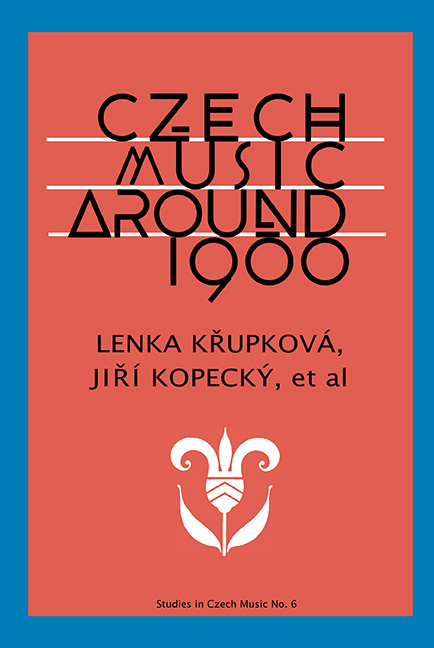Book contents
- Frontmatter
- Table of Contents
- Introductory Remarks on the Conception of This Book
- Flowers in the Graveyard, Tombstones in the Garden
- The “Other World” of Music at the Turn of the Century
- In the Footsteps of Tradition: The Spirit of Romanticism
- Czech Music at the Heart of European Music round 1900
- The Clash with Compositional Issues of European Music
- Index
- List of Illustrations
- About the Authors
- List of Sources Cited
Flowers in the Graveyard, Tombstones in the Garden
- Frontmatter
- Table of Contents
- Introductory Remarks on the Conception of This Book
- Flowers in the Graveyard, Tombstones in the Garden
- The “Other World” of Music at the Turn of the Century
- In the Footsteps of Tradition: The Spirit of Romanticism
- Czech Music at the Heart of European Music round 1900
- The Clash with Compositional Issues of European Music
- Index
- List of Illustrations
- About the Authors
- List of Sources Cited
Summary
IN THE BEGINNING
In the beginning and the end was … the battle. This book opens with the word “convulsions” in its first sentence and closes with a chapter on conflict. In between we get a fascinating kaleidoscope of insights, stories, viewpoints, and yes, confrontations around the question of Czech music by some of the leading scholars in the field, much of which has never before been available in English. These approaches not only involve local concerns, but raise significant questions about the nature of music and its relationship to the rest of the world.
AESTHETIC WARS AND THEIR POSSIBLE CONSEQUENCES
In the final chapter, Lenka Křupková outlines the differing viewpoints of two leading musicologists from the period, Zdeněk Nejedlý and Vladimir Helfert. Nejedlý, she writes, insisted that “only through knowledge of an author's inspirations was it possible to fully understand that author's work”; Helfert, in her words, was equally certain that the history of music was “the history of musical thinking,” and thus what is important is “knowledge of the structure of a musical work, not its extra-musical background.” Because such questions have no right and wrong answers, and because such expressions as “author's inspirations” and “musical thinking” may suggest so many things, these viewpoints concerning musical meaning and value are an invitation to endless polemics, and that is precisely what happened in the Czech lands at the turn of the century. Except for the most deranged conspiracy types, people who believe the Earth is flat may eventually retreat from the main stage as more evidence against them comes in; such a surrender has never happened and will never happen in the subjective world of musical aesthetics.
One could easily take a negative view of all this, and conclude that Czech-speaking composers for twenty-five years on either side of 1900 were enervated, undone, undermined, and fundamentally distracted by overheated arguments, which rose to almost unsurpassed heights of nastiness (see the aforementioned last chapter for some choice examples). You have already encountered the expression, “The graveyard of the hopes of Czech music” in the Introductory Remarks, used by one commentator to describe the period covered by this book. And indeed, one could also point to these verbal wars as an explanation for why so few compositions and composers from that period have gained any notice on the world stage.
- Type
- Chapter
- Information
- Czech Music around 1900 , pp. 13 - 20Publisher: Boydell & BrewerPrint publication year: 2017



